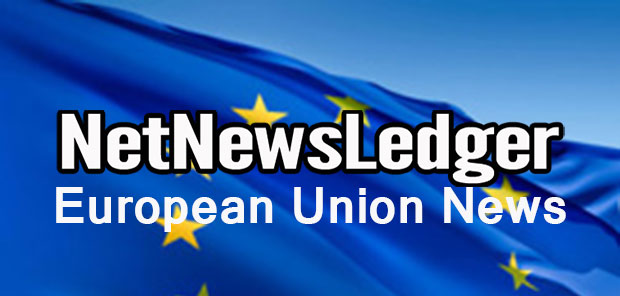
BRUSSELS – International News – Moving toward the new economy, where the digital age and the Internet are increasingly important takes effort on the parts of governments and the private sector. In Europe, the EU is continuing that process with their focus on ‘The Digital Agenda”. First adopted in 2012 as a part of the Europe 2020 strategy, many of the targets have been already met. Now the plan is moving forward into the next two years and making sure that the European Union is ready for the future.
The European Commission has today adopted seven new priorities for the digital economy and society. The digital economy is growing at seven times the rate of the rest of the economy, but this potential is currently held back by a patchy pan-European policy framework. Today’s priorities follow a comprehensive policy review and place new emphasis on the most transformative elements of the original 2010 Digital Agenda for Europe.
European Commission Vice President Neelie Kroes said: “2013 will be the busiest year yet for the Digital Agenda. My top priorities are to increase broadband investment and to maximise the digital sector’s contribution to Europe’s recovery.”
Full implementation of this updated Digital Agenda would increase European GDP by 5%, or 1500€ per person, over the next eight years, by increasing investment in ICT, improving eSkills levels in the labour force, enabling public sector innovation, and reforming the framework conditions for the internet economy. In terms of jobs, up to one million digital jobs risk going unfilled by 2015 without pan-European action while 1.2 million jobs could be created through infrastructure construction. This would rise to 3.8 million new jobs throughout the economy in the long term.
New priorities are:
1. Create a new and stable broadband regulatory environment.
More private investment is needed in high speed fixed and mobile broadband networks. The Commission’s top digital priority for 2013 is therefore finalising a new and stable broadband regulatory environment. A package of ten actions in 2013 will include Recommendations on stronger non-discriminatory network access and new costing methodology for wholesale access to broadband networks, net neutrality, universal service and mechanisms for reducing the civil engineering costs of broadband roll-out. This will build on new Broadband State Aid Guidelines and the proposed Connecting Europe Facility loans.
2. New public digital service infrastructures through Connecting Europe Facility
With Council support, the Commission will fast-track the roll out of digital services (especially their cross border interoperability) in eIDs and eSignatures, business mobility, eJustice, electronic health records and cultural platforms such as Europeana. eProcurement alone could save €100 billion per year and eGovernment can reduce the costs of administration by 15-20 %.
3. Launch Grand Coalition on Digital Skills and Jobs
A coalition is needed to take practical steps to avoid one million ICT jobs going unfilled by 2015 because of lack of skilled personnel. Such an outcome is avoidable, and would be unacceptable at a time of high general unemployment. The Commission will coordinate public and private sector actions to: increase IT training placements, create more direct education-business links, agree standard job profiles and promote skill certification to help job mobility. The Commission will also deliver an action plan to support web entrepreneurs and make Europe more “start-up friendly”.
4. Propose EU cyber-security strategy and Directive
Security and freedom online go hand-in-hand. The EU should offer the world’s safest online environments, valuing user freedom and privacy. The Commission will deliver a strategy and proposed Directive to establish a common minimum level of preparedness at national level, including an online platform to prevent and counter cross-border cyber incidents, and incident reporting requirements. This will stimulate a larger European market for security and privacy-by-design products.
5. Update EU’s Copyright Framework
Modernising copyright is key to achieving this Digital Single Market. Therefore the Commission will seek a solution of copyright-related issues where rapid progress is needed via a structured stakeholder dialogue in 2013. In parallel the Commission will complete its on-going effort to review and the modernise the EU copyright legislative framework, with a view to a decision in 2014 on whether to table resulting legislative reform proposals(see MEMO/12/950.
6. Accelerate cloud computing through public sector buying power
The Commission will launch pilot actions in the European Cloud Partnership (IP/12/1225), which harnesses public buying power to help create the world’s largest cloud-enabled ICT market, dismantling current national fortresses and negative consumer perceptions
7. Launch new electronics industrial strategy
The Commission will propose an industrial strategy for micro- and nano-electronics, to increase Europe’s attractiveness for investment in design and production as well as growing its global market share.
Complete Press Conference:







